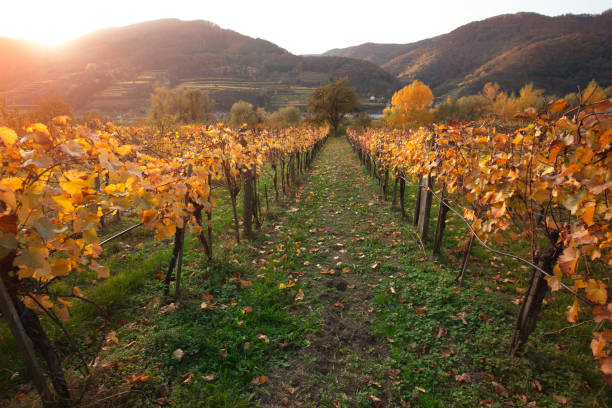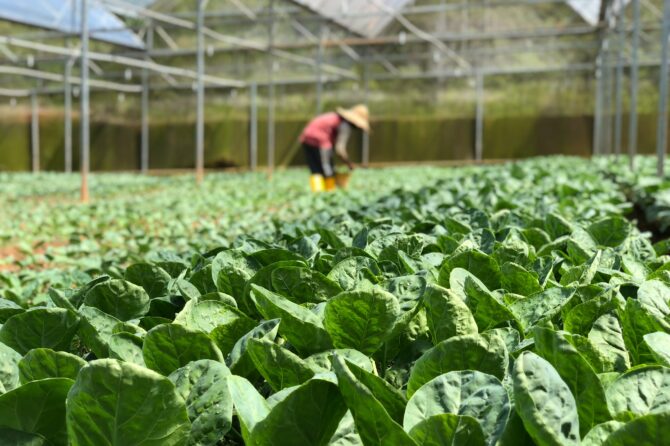Agrotourism, a portmanteau of “agriculture” and “tourism,” refers to a form of tourism that involves visitors engaging with various aspects of agricultural life. It encompasses a wide range of activities, from staying on a working farm to participating in hands-on agricultural tasks. Unlike conventional tourism, agrotourism immerses travellers in the daily rhythms and practices of rural life, providing them with an authentic experience that often fosters a deeper connection with nature and local communities.
In recent years, agrotourism has experienced a significant surge in popularity, becoming a burgeoning sector within the broader tourism industry. This surge can be attributed to several key factors, including a shifting consumer preference towards more authentic and meaningful experiences. Travellers are increasingly seeking opportunities to connect with the land, understand food production processes, and interact with the people behind the products they consume.
The purpose of this blog post is to delve into the phenomenon of agrotourism, examining both its opportunities and challenges. We’ll explore the reasons behind its growth, the various forms it takes, and the potential benefits it offers to both farmers and rural communities. Additionally, we’ll address the practical considerations and hurdles that individuals interested in venturing into agrotourism may encounter. By the end of this exploration, you’ll have a comprehensive understanding of this dynamic trend and the potential it holds for sustainable tourism and local economies.
The Rise of Agrotourism
A. Historical Background and Evolution
Agrotourism’s roots can be traced back to early agrarian societies, where the exchange of knowledge and goods between farmers and visitors was commonplace. However, it wasn’t until the late 20th century that agrotourism began to take on a more structured form. Initiatives aimed at preserving rural heritage and promoting sustainable agriculture played a pivotal role in shaping agrotourism as we know it today.
B. Factors Driving the Growth
1. Consumer Interest in Authentic Experiences
In an era marked by mass tourism and globalisation, there has been a discernible shift in consumer preferences towards more authentic, hands-on experiences. Travellers seek connections with local cultures and environments, valuing experiences that offer a deeper understanding of the places they visit. Agrotourism, with its focus on genuine interactions with nature and rural life, fulfils this desire for authenticity.
2. Environmental and Sustainable Practices
The heightened awareness of environmental issues and sustainable living practices has led many individuals to seek out experiences that align with their values. Agrotourism provides a platform for farmers and communities to showcase eco-friendly farming methods, conservation efforts, and sustainable resource management. Visitors are not only exposed to these practices but often leave with a heightened appreciation for the importance of responsible agriculture.
3. Economic Benefits for Rural Communities
Agrotourism can be a lifeline for rural economies, injecting much-needed income and vitality into communities that may otherwise face economic challenges. By opening their farms to visitors, farmers diversify their revenue streams, creating stability in an industry often subject to fluctuating market conditions. Additionally, agrotourism stimulates ancillary businesses such as local eateries, artisans, and accommodation providers, further contributing to the economic vibrancy of the region.
The combination of these factors has led to a surge in interest and participation in agrotourism, making it a compelling force within the broader tourism landscape.
Opportunities in Agrotourism
A. Economic Benefits for Farmers and Rural Communities
One of the most significant advantages of embracing agrotourism is the substantial economic boost it provides to farmers and rural communities. By opening their doors to visitors, farmers can generate additional income beyond traditional agricultural practices. This supplementary revenue can be crucial for sustaining their operations, especially during seasons of unpredictable markets or adverse weather conditions. Moreover, it allows for reinvestment in the farm, enabling the adoption of innovative and sustainable farming practices.
B. Diversification of Income Sources
Agrotourism offers farmers the opportunity to diversify their income streams, reducing reliance on a single source of revenue. This diversity not only provides financial stability but also allows for experimentation with new crops or livestock breeds that may not be feasible in a strictly commodity-driven model. Furthermore, it can serve as a buffer against market fluctuations, ensuring a more consistent flow of income throughout the year.
C. Preservation of Local Heritage and Traditions
In many cases, agrotourism plays a crucial role in preserving local heritage and cultural traditions. It allows farmers to showcase traditional farming methods, regional cuisine, and artisanal crafts that are often deeply rooted in the history of the area. By sharing these practices with visitors, farmers contribute to the conservation of cultural heritage, fostering a sense of pride and continuity within their communities.
D. Education and Awareness for Visitors
Agrotourism provides a unique platform for education and awareness-building. Visitors, especially those from urban environments, gain a firsthand understanding of the complexities of agriculture, from planting and harvesting to animal husbandry. This experiential learning fosters a greater appreciation for the hard work and dedication required to produce the food and resources we often take for granted. Additionally, it encourages a more informed consumer base that may make more conscious choices about the products they purchase.
By capitalising on these opportunities, agrotourism not only benefits farmers and rural communities but also contributes to a more sustainable and informed society at large.
Types of Agrotourism Experiences

A. Farm Stays and Accommodations
Farm stays offer visitors a unique opportunity to fully immerse themselves in the agricultural lifestyle. Guests reside on working farms, experiencing daily routines and even participating in farming activities. This type of agrotourism experience provides a genuine connection with the land and its inhabitants, allowing for a deeper appreciation of rural life.
B. Farm Tours and Workshops
Farm tours and workshops are popular forms of agrotourism that provide structured educational experiences. Visitors have the chance to explore the various facets of farming operations, guided by knowledgeable hosts. Workshops may cover topics such as organic farming practices, animal care, or even culinary skills related to farm-to-table cuisine.
C. Farmers’ Markets and Agri-Festivals
Farmers’ markets and agri-festivals are vibrant community events that bring together local producers and consumers. These gatherings offer visitors the chance to purchase fresh, locally-grown produce, handmade crafts, and other agricultural products. They also serve as a platform for farmers to share their expertise and build relationships with their customer base.
D. Hands-on Activities (e.g., Harvesting, Milking)
For those seeking a more interactive experience, hands-on activities provide a direct connection to the agricultural process. Visitors may have the opportunity to engage in tasks like fruit picking, vegetable harvesting, or even milking cows. These activities offer a tangible sense of accomplishment and a deeper understanding of the work involved in producing food.
Each type of agrotourism experience caters to different preferences and levels of engagement, ensuring there’s something for every type of visitor interested in exploring the world of agriculture.
Challenges and Considerations
A. Infrastructure and Accessibility
One of the primary challenges in agrotourism is ensuring that farms have the necessary infrastructure to accommodate visitors. This may include providing safe and comfortable accommodations, restroom facilities, and recreational spaces. Additionally, accessibility can be a concern, especially for individuals with mobility challenges. Farms considering agrotourism must invest in the necessary infrastructure to meet the needs of their guests.
B. Regulatory and Compliance Issues
Navigating the legal and regulatory landscape can be a complex task for farmers entering the agrotourism sector. There may be zoning restrictions, health and safety regulations, and licensing requirements to contend with. Ensuring compliance with all relevant laws is crucial to avoiding potential legal issues and ensuring a safe and enjoyable experience for visitors.
C. Balancing Tourism with Farming Operations
Finding the right balance between accommodating visitors and maintaining the day-to-day operations of a working farm can be a significant challenge. Farmers must carefully plan and manage their schedules to ensure that agritourism activities do not interfere with essential farming tasks. This requires strategic planning and may necessitate additional staffing or resources.
D. Environmental Impact and Sustainability
While agrotourism can have positive environmental benefits, such as promoting sustainable farming practices, it’s essential to carefully manage its potential negative impacts. This includes minimising soil erosion, conserving water resources, and responsibly managing waste. Farmers engaged in agrotourism must prioritise sustainable practices to ensure the long-term health of their farms and surrounding ecosystems.
By addressing these challenges and considerations, farmers can create a successful and sustainable agritourism venture that benefits both their operations and the broader community.
Conclusion
The journey through the world of agrotourism has revealed a dynamic and flourishing industry, driven by a growing demand for authentic, nature-based experiences. From its historical roots to its modern-day manifestations, agrotourism has evolved into a vibrant sector within the broader tourism landscape.
For aspiring entrepreneurs and farmers, agrotourism presents a compelling opportunity to diversify income streams, preserve local heritage, and educate the public about the vital role of agriculture. By embracing this trend, individuals can not only enrich their own livelihoods but also contribute to the economic vitality and cultural richness of their communities.
Looking ahead, the future of agrotourism holds even greater promise. Advancements in technology, specialised agrotourism experiences, and increased global collaboration are poised to further enhance this industry. With careful planning, dedication to sustainability, and a genuine passion for agriculture, the potential for agrotourism to continue flourishing is boundless.
As we conclude this exploration, we invite you to embark on your own agrotourism journey, whether as a visitor seeking enriching experiences or as a farmer eager to share the wonders of agriculture with the world. Together, we can cultivate a future where agrotourism thrives, benefiting farmers, communities, and travellers alike.












